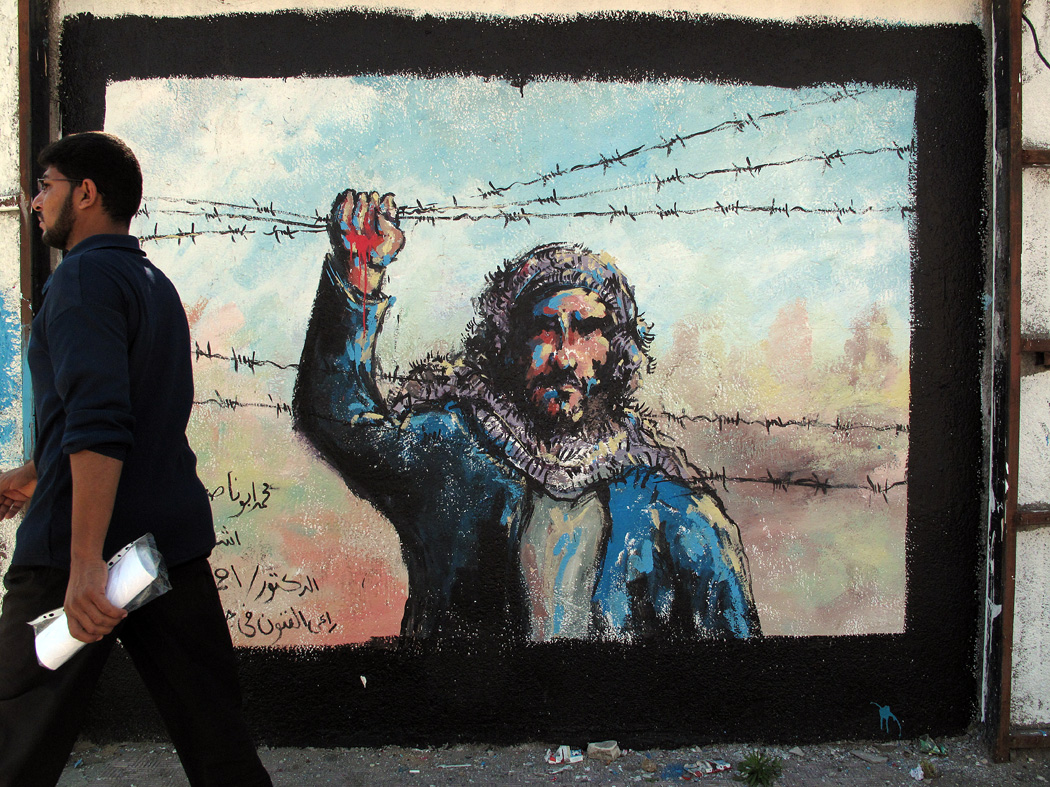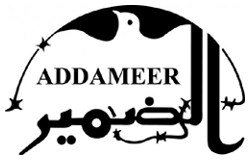
At night, when the power cuts off in my house in Gaza, my family and I sit in the living room with candles or gas lamps. We gather without internet, television or books; it’s just us talking and passing time until we go to bed. While it’s annoying that we don’t have electricity, I like these moments when my mother and father tell us stories of the past.
During these gatherings, when we often talk about family memories. my father never talks about the agony he experienced in an Israeli prison, although I know he was tortured. He talks instead about the books he read and shows us the poems he wrote. Once I found a letter he sent when he was imprisoned in the Al-Naqab Desert, where the weather was too hot during the day and too cold at night. He wrote about being sick, with no medical care.
When my mother gets tired, my father cooks for us. He is a good cook. One day he prepared a dish he used to eat in prison, a mixture of bologna, onion, tomato and egg. It tasted terrible, but he considered it delicious because it was the best meal he had in prison.
My father was jailed for two years and two months because he drew words and pictures on the streets during the first intifada. I’ll never understand a prison sentence of two years for graffiti!
According to the Palestinian Ministry of Detainees’ and Ex-Detainees’ Affairs, more than 800,000 Palestinians have been detained by the Israeli government since 1967. That’s 25 percent of the Palestinian people.
Imprisoned for nearly a quarter of a century
My maternal uncle also lived this miserable life for 24 years. He was accused of leading anti-Israeli activities and sentenced to seven life terms and 20 years, along with more than 750 other people during the first intifada. Although he was jailed just six months after his wedding, his wife never asked for a divorce; she decided to wait for him because she believed the resistance would eventually end the occupation.
Every month, my grandmother, my uncle’s wife, my aunts and my mother would prepare in the early morning to visit my uncle, although only two would be allowed to see him each time. They would wake before dawn, cook foods he couldn’t get in prison, then start the journey from Gaza to Nafha Prison near Beersheba.
My mother recalls this journey as long and demeaning. The group would spend the whole day traveling to see my uncle for only half an hour. Some days they would come back to Gaza without having seen him because he was in the prison hospital or solitary confinement. As they passed through many checkpoints, Israeli soldiers used dogs to search them, which was frightening and humiliating them. On some days, they spent many hours waiting in very hot or cold weather.
My grandmother was illiterate, but she always waited impatiently for mail from my uncle, delivered by his lawyer, who would read the letters to her. These letters were like a treasure to her; she never let us touch them when we were children. But I was always curious about my uncle, so I would search for the letters and read them.
My uncle expressed his love and longing for all of us and would ask about each family member. Like my father, he tried not to mention the brutality he was facing and instead said he was doing okay. The first letter I ever wrote was to him was when I was 10 years old – to a prisoner I had never met because he was jailed before I was born.
In June 2006, after Hamas captured Israeli soldier Gilad Shalit, the Israeli government barred Palestinians from Gaza from visiting their relatives in prison. After that, my family didn’t see my uncle. My grandmother and grandfather died the next year, never seeing their son again.
During this period, every Saturday at 6 p.m. my mother would sit by the phone and wait for it to ring. Although my uncle was not allowed to call from prison, he would try his best to phone in secret. All of us would sit around her in silence.
When I had the opportunity to talk to him, he always urged me to do well in school and would promise me gifts if I got high marks. I still remember the sweet taste of the chocolate he sent me through my mother; it was delicious! I would always tell him how much I loved him and missed him, even though I had never met him face to face. He was a human, husband and beloved uncle. I was eager to meet him.
The release
In October 2011, I was a university student, no longer the child who searched secretly for her uncle’s letters. On a Saturday evening, we gathered as usual in the near-dark. The phone rang. My father answered and someone said many prisoners would be freed soon – my uncle among them. On October 18, he was released as part of the prisoner swap for Gilad Shalit.
Now it is 2016, and my uncle sometimes joins us in our shadowy evenings. He is not the same person after all of those years of imprisonment; he talks very little. However, my uncle is free, and he and his wife had their first son recently.
Although he was liberated, there still are more than 7,000 Palestinian prisoners trapped in Israel’s prisons. This year, on the 17th of April – Palestinian Prisoners’ Day, no one can know when they will be free.
– See more at: http://www.wearenotnumbers.org/home/Story/180




